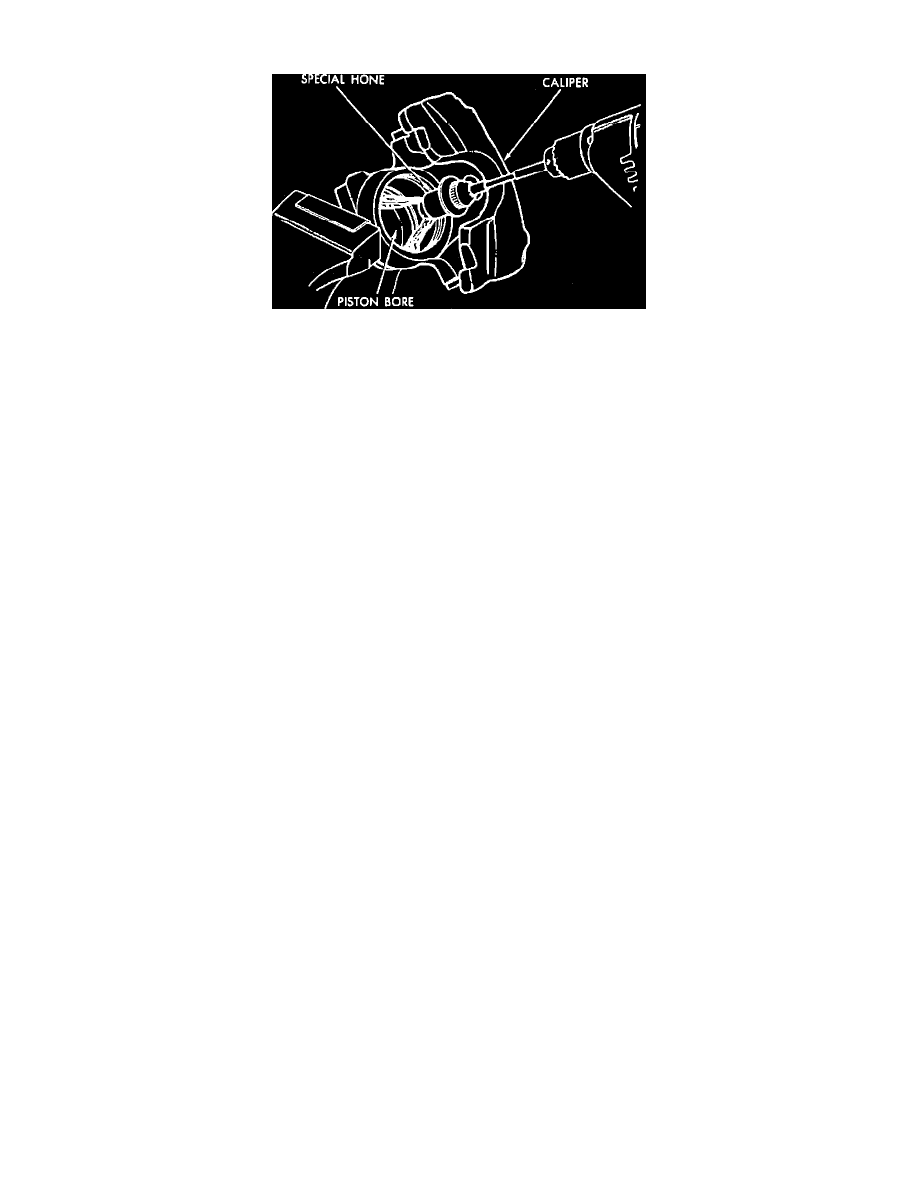Laser FWD L4-1997cc 2.0L DOHC Turbo (1993)

Brake Caliper: Testing and Inspection
Fig. 2 Honing Caliper Piston Bore
Should it become necessary to remove the caliper for installation of new parts, clean all parts in denatured alcohol, wipe dry using lint-free cloths. Using
an air hose, blow out drilled passages and bores. Check dust boots for punctures or tears. Generally, new boots should be installed upon reassembly.
Inspect piston bores for scoring or pitting. Bores that show light scratches or corrosion can usually be cleaned with crocus cloth. However, bores that
have deep scratches or scoring may be honed, provided the diameter of the bore is not increased more than 0.002 inch. If the bore does not clean up to
within this specification, a new caliper housing should be installed. Black stains on the bore walls are caused by piston seals and will do no harm.
When using a hone, be sure to install the hone baffle before honing bore. The baffle is used to protect the hone stones from damage. Use extreme care in
cleaning the caliper after honing. Remove all dust and grit by flushing the caliper with denatured alcohol. Wipe dry with clean lint-free cloth and then
clean a second time in the same manner.
